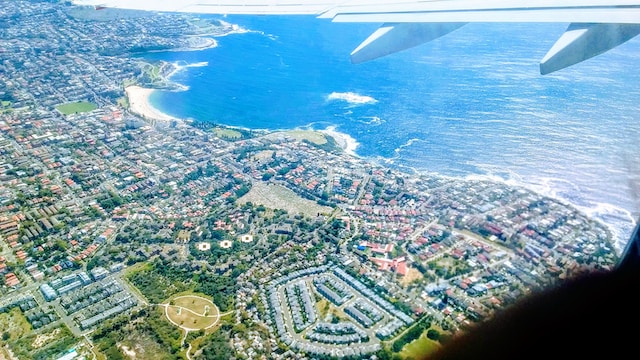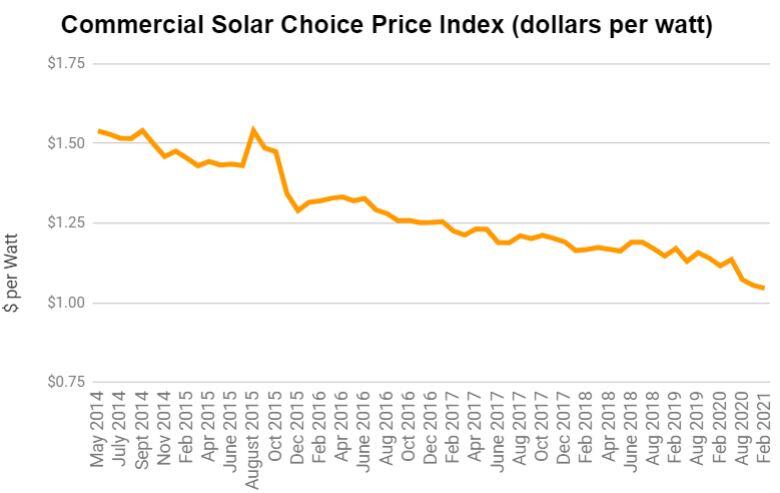Installing solar panels presents one of the primary ways a business can reduce their electricity costs. Commercial solar panel projects in Hobart present an attractive return on investment, particular for businesses with longer leases or that own their premises.
What is the ROI for commercial solar projects in Hobart, Tasmania?
The short answer is it varies on a number of factors including your electricity rates, your building’s roof and electrical infracture and how you use power through-out the day and night. However we can say that a typical Tasmanian rooftop will receive 3.8 hours of ‘peak sun’ on average per day (based on data from the Bureau of Meteorology). This means a 1kW solar system would generate 3.04 kWh of energy per day – although this is an average, and will be higher in summer and lower in winter.
Using some basic assumptions we can then determine a typical savings and ROI for solar projects in Tasmania:
| Solar System Size | Average Daily Generation (kWh) | Annual Solar Generation (kWh) | Assumed Rate Paid by Business | Annual Savings (assumes 70% self-consumption) |
| 10kW | 30 | 11,096 | $0.25 per kWh | $1,942 |
| 39kW | 119 | 43,274 | $0.22 per kWh | $6,664 |
| 70kW | 213 | 77,672 | $0.18 per kWh | $9,787 |
| 100kW | 304 | 110,960 | $0.15 per kWh | $11,651 |
| 500kW | 1,520 | 554,800 | $0.13 per kWh | $50,487 |
The above estimates use some broad assumptions, your case may be better or worse that these examples. Solar Choice’s experienced engineering team can provide a free feasibility assessment to work out the optimal system size for your business and the estimated cash flows and financial return.
Request a free solar business case and compare leading commercial installers
Commercial solar panel costs in Hobart
Most commercial solar projects in Tasmania have been under 100kW which is sufficient size for most small to medium businesses and also takes advantage of the federal STC rebate which effectively provides ~30% of the upfronts costs. For systems beyond 100kW, they are eligible for the LGC rebate which provides an ongoing revenue stream through to 2030.
Solar Choice has been tracking commercial solar prices in Hobart and Tasmania since 2014 and publish monthly updates through the Solar Choice Commercial Price Index. The below table provides the average cost of solar for different system sizes.
| Indicative Solar Power Prices (Inc. STC Rebate & GST) | |||||
| System Size | 10kW | 30kW | 50kW | 70kW | 100kW |
| Hobart, TAS | $12,890 | $32,810 | $56,410 | $74,690 | $94,020 |
The cost of solar has become much more affordable over recent years and has helped drive an increasing take up by businesses in Tasmania. The below table shows the history of commercial solar prices across Australia.
The downward shift has been driven by significant improvements in R&D by solar panel manufacturers and continually increasing scale and efficiency of production.
Low maintenance investment
A well designed and good quality solar panel installation requires very little maintenance or inputs once they are installed and functioning. As long as the panels are on a tilt of around 5 degrees, the heavy rainfall we receive in Australia is sufficient to clean the panels. We do recommend getting a pro-active electrical inspection every 3-5 years to ensure all components on the roof are holding up well, which your installer should be happy to do at a basic cost.
Be wary of offers that look to good to be true, as cheap solar inevitably will end up in continual problems with low quality products and poor worksmanship. Don’t be fooled by the long warranties on cheap products as they are only worthwhile if you have a chance of making a claim and if your installer is still around to help you process is.
Financing for Commercial Solar Systems in Tasmainia
There are a number of ways in which a solar project can be financed. Typically finance agreements offer a way for companies to pay for the system out of the savings it produces – whereby the repayments are more than covered by the reduction in electricity costs. There are pros and cons of each which you can discuss with one of our expert consultants and with your CFO or accountant.
| Type | Description | Typical Terms |
| Chattel Mortgage |
|
3% to 6%2 to 10 years |
| Rent to Own (operating lease) |
|
3% to 6%2 to 10 years |
| Power Purchase Agreement |
|
8c per kWh to 15c per kWh7 to 30 years |
Read our balanced assessment of the pros and cons of each financing method and a detailed example.
Interested in solar power for your business in Tasmania?
Solar Choice Commercial has managed tenders for hundreds of small to large scale solar projects since 2008, with an expert knowledge of the best and most competitive solar contractors across the state..
Among the benefits of choosing Solar Choice Commercial to run your commercial solar project tender are:
- Access to Solar Choice’s online Tender Management Platform, which provides instant market transparency for many of the leading commercial installers in Australia across a range of sizes (as small as 1.5kW to over 1 megawatt).
- A free solar business case based on your historic electricity bills.
Request a free solar business case and compare leading commercial installers
Since 2008 Solar Choice has consulted with over 3,000 businesses around Australia and helped develop over 800MW solar commercial and solar farm projects.
- Solar Panel Costs: Solar Choice Price Index | April 2025 - 1 April, 2025
- Solar Panels For Homes – All You Need to Know About Solar Systems - 18 March, 2025
- Best NSW Solar Feed-In Tariffs - 17 March, 2025

